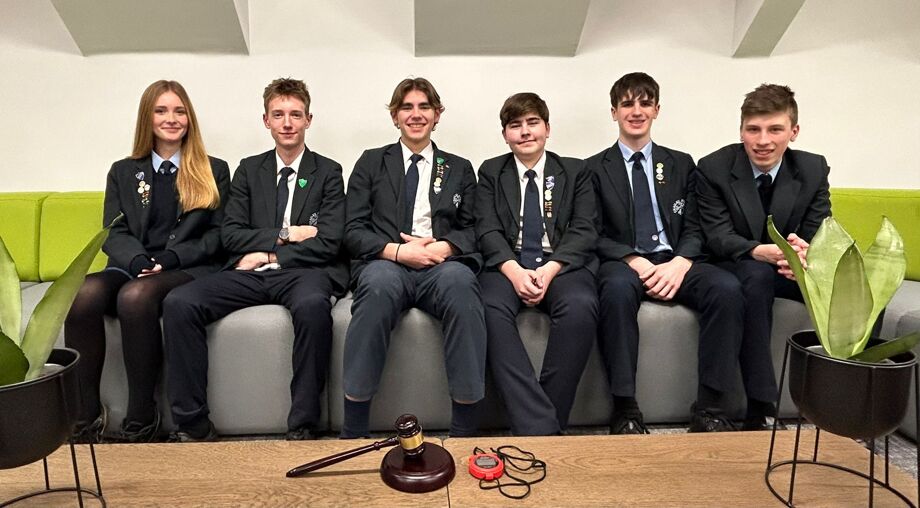- Home
- News and Key Dates
- School News
- English Speaking Union Public Speaking C...
English Speaking Union Public Speaking Competition
Back
On Tuesday, six of our students travelled to St Edmund’s School, Canterbury to take part in the second round of this year’s English-Speaking Union Public Speaking Competition.
There were four schools participating in the event (Chailey, The King’s School, Kent College and the host school, St Edmund’s) and a total of six teams. Each team is comprised of three roles: the chairperson, who leads the debate, the speaker, who delivers a speech, and the questioner, whose role is to question the speaker following their speech. Each speaker is paired with a chair and questioner from another school.
This was certainly a step up from the first round which took place over Zoom but, after brushing any nerves aside, it was time for our two teams to meet the other students they would be paired with for the presentations.
Following this, it was time for the competition to begin in earnest! Bill, as chairperson, and Greg, as questioner, were up first, paired with a speaker from the host school, St Edmund’s. Bill upheld a masterful hold of the timings (a key component of the chairperson’s role) and was loud, clear, and confident in his addresses to the audience, despite being the first chairperson of the night. The speaker’s speech was centred around the theme of perseverance and the famous quote which is apparently falsely attributed to Winston Churchill: ‘if you’re going through hell, keep going’. Once the speaker had delivered their speech, it was over to Greg to unpick and explore this topic further through his questions, drawing on topics such as the sunk cost fallacy and generational differences. Greg remained calm under the considerable pressure that this role generates as the questions have to be prepared live.
After Bill and Greg, it was the turn of our next double act: George and Kip, paired with a speaker from Kent College. George was personable, warm and friendly in the role and introduced the speech about the NHS. Kip’s role as questioner was then to cut through to the core of the social and political issues underpinning the creation and condition of the NHS, touching on the impacts of the COVID-19 pandemic.
After this, it was Stanley’s turn to shine as speaker. Stan is a natural in this role, able to articulate complex concepts with seeming ease – namely, the pernicious nature of social media. Stan explored the dangers of not examining the ‘echo chamber’ that social media can become, the insidious nature of the algorithms driving our feeds, and the notion that if there is no product being sold, the consumer themselves is the product.
In the last of the six presentations of the evening came Evie’s speech. Evie spoke clearly and confidently about mental health in a speech that was peppered with relevant (and worrying statistics) and woven together with an empathetic look at the issues that are compounding a staggering surge in mental health issues amongst our young people: social media, school, and social issues. Evie’s speech ended with a focus on positive mental health and the preventative, proactive steps we can all take to look after ourselves.
After a slightly agonising wait for the judge deliberation period (only three of the six teams present would go through to the next stage), we were ecstatic to hear that both our teams had progressed through to the next round of the competition. They gave fantastic performances in their challenging roles and we wish them all the very best for the next stage of the competition.
